Rick Wakeman - The Art In Music Trilogy [Deluxe Remastered] (1999/2017)
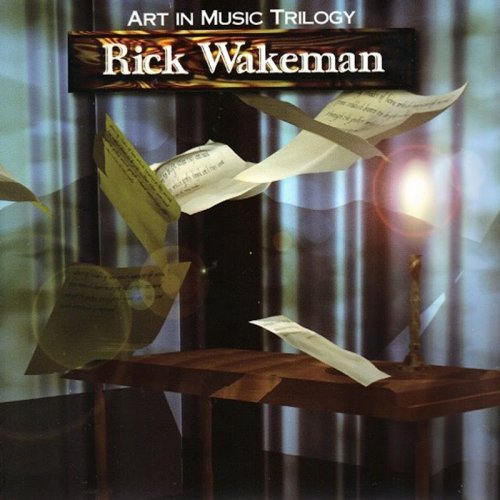
Artist: Rick Wakeman
Title: The Art In Music Trilogy (Deluxe Remastered)
Year Of Release: 1999/2017
Label: Esoteric Recordings
Genre: New Age, Instrumental, Progressive Rock
Quality: Mp3 320 kbps / FLAC (tracks)
Total Time: 187:02 min
Total Size: 443 MB / 1 GB
WebSite: Album Preview
Tracklist:Title: The Art In Music Trilogy (Deluxe Remastered)
Year Of Release: 1999/2017
Label: Esoteric Recordings
Genre: New Age, Instrumental, Progressive Rock
Quality: Mp3 320 kbps / FLAC (tracks)
Total Time: 187:02 min
Total Size: 443 MB / 1 GB
WebSite: Album Preview
CD1:
01. White Castles
02. Glacier Valleys
03. The Porcelain Doll
04. The Snowcast
05. Pillars of Hope
06. A Fountain of Tears
07. The Figurine
08. The Dancing Pierrot
09. A Castle of Dreams
CD2:
01. Seeds of Thought
02. Preface to a Dream
03. The Mottled Blackbird
04. The Quill
05. Lucky Curve
06. The Evening Fable
07. Shelly Beach
08. Birth of Nature
09. A Tale of Spring
10. Stories of Bygone Days
CD3:
01. The Dancing Hedgerow
02. The Clock Tower
03. Sunbeams
04. The Village Green
05. Portrait of a Dream
06. Mountain Mist
07. Waterlillies
08. Tommy Big Eyes
09. The Lone Fisherman
10. Little Lady
11. View from a Hill
12. A Hint of Autumn
13. Boulters Lock
14. Orcombe Point
15. The Brooklet
16. The Fireside
One of the premier rock keyboardists of the progressive era, Rick Wakeman was born in Perivale, Middlesex, England, in 1949. His interest in music manifested itself very early, and from the age of seven he studied classical piano. At the age of 14, he joined a local band, Atlantic Blues, the same year he left school to enroll in the Royal College of Music. He had his eye on a career as a concert pianist, but Wakeman was dismissed from the college after it became clear that he preferred playing in clubs to studying technique.
By his late teens, he was an established sessionman, playing on records by such diverse acts as Black Sabbath, Brotherhood of Man, and Edison Lighthouse. At the end of the '60s, his name also began appearing on the credits of albums by such artists as Al Stewart and David Bowie, and one set of sessions with a folk-rock band called the Strawbs led to his joining the group in 1970. After two albums with the Strawbs, Wakeman joined Yes, a post-psychedelic hard rock band that had attracted considerable attention with their first three albums. Wakeman played a key role in the final shape of the group's fourth record, Fragile, creating a fierce, swirling sound on an array of electric and acoustic pianos, synthesizers, and Mellotrons. Fragile was a hit, driven by the chart success of the single "Roundabout," and Wakeman was suddenly elevated to star status.
Yes' next album, Close to the Edge, expanded his audience and his appeal, for his instruments were heard almost continually on the record. During the making of Close to the Edge in 1972, Wakeman also recorded his first solo album, an instrumental work titled The Six Wives of Henry VIII, which consisted of his musical interpretations of the lives and personalities of the said six royal spouses. Released early in 1973 on A&M, it performed respectably on the charts. Public reception of Yes' 1974 album, Tales from Topographic Oceans, was mixed, and the critics were merciless in their attacks upon the record. Wakeman exited the group before the album's supporting tour. His new solo album, Journey to the Center of the Earth, adapted from the writings of Jules Verne and featuring a rock band, narrator (David Hemmings), and full orchestral and choral accompaniment, was released to tremendous public response in both America and England, where it topped the charts. In 1975, his next album, The Myths and Legends of King Arthur and the Knights of the Round Table, was given a grand-scale premiere at Wembley's Empire Pool, although it also cost Wakeman a fortune to stage the event on ice. During this same period, Wakeman began working on film scores with the music for Ken Russell's Lisztomania, which was a modest hit.
In 1977, Wakeman returned to Yes, with whom he would continue recording and touring for various stretches over the next three decades. His solo career continued on A&M until the end of the '70s with Criminal Record and Rhapsodies, which were modestly successful. Wakeman's biggest media splash during this period, however, came through his alleged role in getting the Sex Pistols dropped by A&M soon after being signed. None of this bothered his fans, which rapidly expanded to encompass those he picked up through his work with lyricist Tim Rice on a musical adaptation of George Orwell's 1984, and his burgeoning film work, which included the music to movies about the 1976 Winter Olympics and the 1982 soccer World Cup competition. Additionally, he became a regular on Britain's Channel 4. Wakeman's audience and reputation survived the '80s better than many progressive rock stars of his era as he continued releasing albums on his own label. In 1988, he and three of his Yes bandmates formed Anderson, Bruford, Wakeman, Howe and released their lone album in 1989. This lineup would eventually merge with Yes' other working half to release the 1991 comeback album Union. Throughout the '90s, Wakeman remained prolific, recording a handful of solo piano albums like Heritage Suite (1993) and The Piano Album (1995), as well as composing scores for films like Bullet to Beijing and Midnight in St. Petersburg. He also briefly rejoined Yes to record their Keys to Ascension album, though he again left the band before touring began. Following a 1999 sequel to Journey to the Centre of the Earth called Return to the Centre of the Earth, Wakeman began his fifth stint as Yes' keyboardist, joining them for several massive tours including a 35th anniversary tour in 2004. Meanwhile, his solo output remained consistent throughout the decade. By 2008, when Yes again resumed touring, Wakeman bowed out, and his son Oliver Wakeman replaced him on keyboards. Developing his own live retrospective, he toured that year with Rick Wakeman's Grumpy Old Picture Show then, in 2009, celebrated the 500th anniversary of Henry the VIII's ascension to the throne with a two-night live run of The Six Wives of Henry VIII at Hampton Palace Court. 2014 saw a 40th anniversary tour of Journey to the Centre of the Earth. In 2016, former Yes bandmates Trevor Rabin and Jon Anderson revealed that they had been writing songs with Wakeman with the intention of forming a new collaborative project together. ~ Bruce Eder & Timothy Monger
By his late teens, he was an established sessionman, playing on records by such diverse acts as Black Sabbath, Brotherhood of Man, and Edison Lighthouse. At the end of the '60s, his name also began appearing on the credits of albums by such artists as Al Stewart and David Bowie, and one set of sessions with a folk-rock band called the Strawbs led to his joining the group in 1970. After two albums with the Strawbs, Wakeman joined Yes, a post-psychedelic hard rock band that had attracted considerable attention with their first three albums. Wakeman played a key role in the final shape of the group's fourth record, Fragile, creating a fierce, swirling sound on an array of electric and acoustic pianos, synthesizers, and Mellotrons. Fragile was a hit, driven by the chart success of the single "Roundabout," and Wakeman was suddenly elevated to star status.
Yes' next album, Close to the Edge, expanded his audience and his appeal, for his instruments were heard almost continually on the record. During the making of Close to the Edge in 1972, Wakeman also recorded his first solo album, an instrumental work titled The Six Wives of Henry VIII, which consisted of his musical interpretations of the lives and personalities of the said six royal spouses. Released early in 1973 on A&M, it performed respectably on the charts. Public reception of Yes' 1974 album, Tales from Topographic Oceans, was mixed, and the critics were merciless in their attacks upon the record. Wakeman exited the group before the album's supporting tour. His new solo album, Journey to the Center of the Earth, adapted from the writings of Jules Verne and featuring a rock band, narrator (David Hemmings), and full orchestral and choral accompaniment, was released to tremendous public response in both America and England, where it topped the charts. In 1975, his next album, The Myths and Legends of King Arthur and the Knights of the Round Table, was given a grand-scale premiere at Wembley's Empire Pool, although it also cost Wakeman a fortune to stage the event on ice. During this same period, Wakeman began working on film scores with the music for Ken Russell's Lisztomania, which was a modest hit.
In 1977, Wakeman returned to Yes, with whom he would continue recording and touring for various stretches over the next three decades. His solo career continued on A&M until the end of the '70s with Criminal Record and Rhapsodies, which were modestly successful. Wakeman's biggest media splash during this period, however, came through his alleged role in getting the Sex Pistols dropped by A&M soon after being signed. None of this bothered his fans, which rapidly expanded to encompass those he picked up through his work with lyricist Tim Rice on a musical adaptation of George Orwell's 1984, and his burgeoning film work, which included the music to movies about the 1976 Winter Olympics and the 1982 soccer World Cup competition. Additionally, he became a regular on Britain's Channel 4. Wakeman's audience and reputation survived the '80s better than many progressive rock stars of his era as he continued releasing albums on his own label. In 1988, he and three of his Yes bandmates formed Anderson, Bruford, Wakeman, Howe and released their lone album in 1989. This lineup would eventually merge with Yes' other working half to release the 1991 comeback album Union. Throughout the '90s, Wakeman remained prolific, recording a handful of solo piano albums like Heritage Suite (1993) and The Piano Album (1995), as well as composing scores for films like Bullet to Beijing and Midnight in St. Petersburg. He also briefly rejoined Yes to record their Keys to Ascension album, though he again left the band before touring began. Following a 1999 sequel to Journey to the Centre of the Earth called Return to the Centre of the Earth, Wakeman began his fifth stint as Yes' keyboardist, joining them for several massive tours including a 35th anniversary tour in 2004. Meanwhile, his solo output remained consistent throughout the decade. By 2008, when Yes again resumed touring, Wakeman bowed out, and his son Oliver Wakeman replaced him on keyboards. Developing his own live retrospective, he toured that year with Rick Wakeman's Grumpy Old Picture Show then, in 2009, celebrated the 500th anniversary of Henry the VIII's ascension to the throne with a two-night live run of The Six Wives of Henry VIII at Hampton Palace Court. 2014 saw a 40th anniversary tour of Journey to the Centre of the Earth. In 2016, former Yes bandmates Trevor Rabin and Jon Anderson revealed that they had been writing songs with Wakeman with the intention of forming a new collaborative project together. ~ Bruce Eder & Timothy Monger
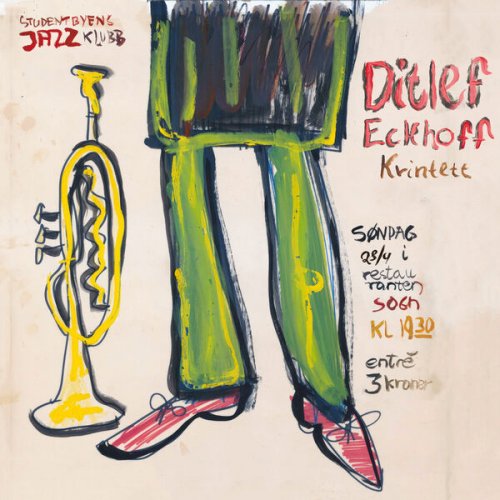
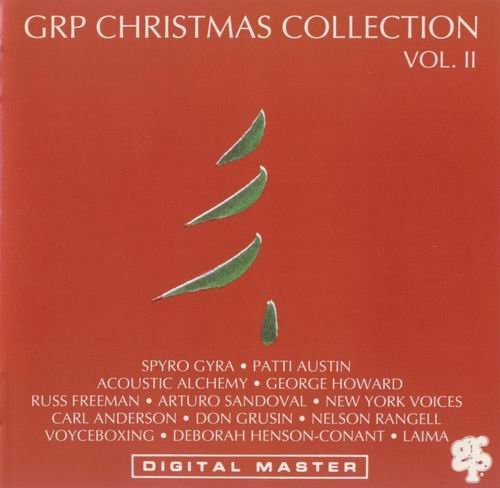
![Philipp Gropper’s Philm - Sun Ship (2017) [Hi-Res] Philipp Gropper’s Philm - Sun Ship (2017) [Hi-Res]](https://img.israbox.com/img/2025-12/22/lxfeu4bqs3xus6ku842hruzby.jpg)
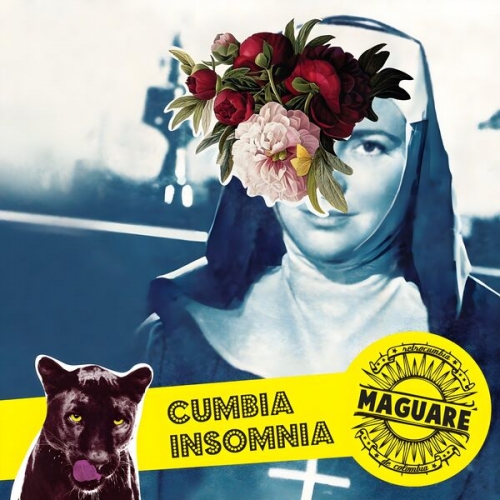
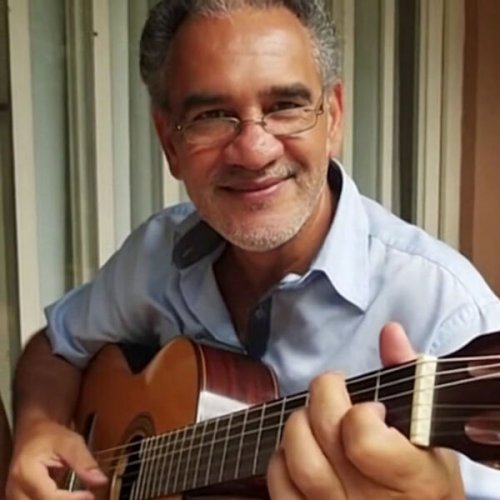

![Teho Teardo, Blixa Bargeld - Christian & Mauro (2024) [Hi-Res] Teho Teardo, Blixa Bargeld - Christian & Mauro (2024) [Hi-Res]](https://img.israbox.com/img/2025-12/21/bjlcx9vjtvjfc16apdpl5r09h.jpg)
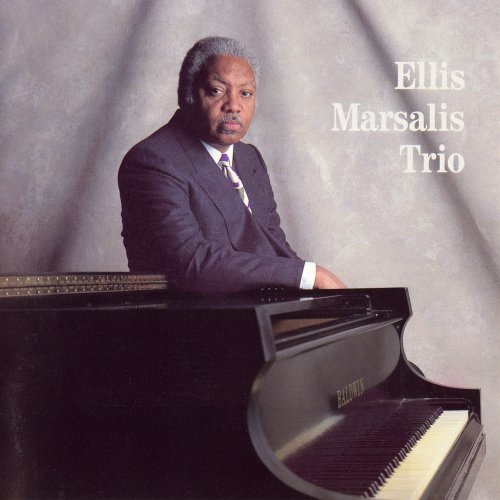
![Iman Spaargaren & Peter Bjørnild - In Essence (2025) [DSD256] Iman Spaargaren & Peter Bjørnild - In Essence (2025) [DSD256]](https://www.dibpic.com/uploads/posts/2025-12/1766381912_cover.jpg)